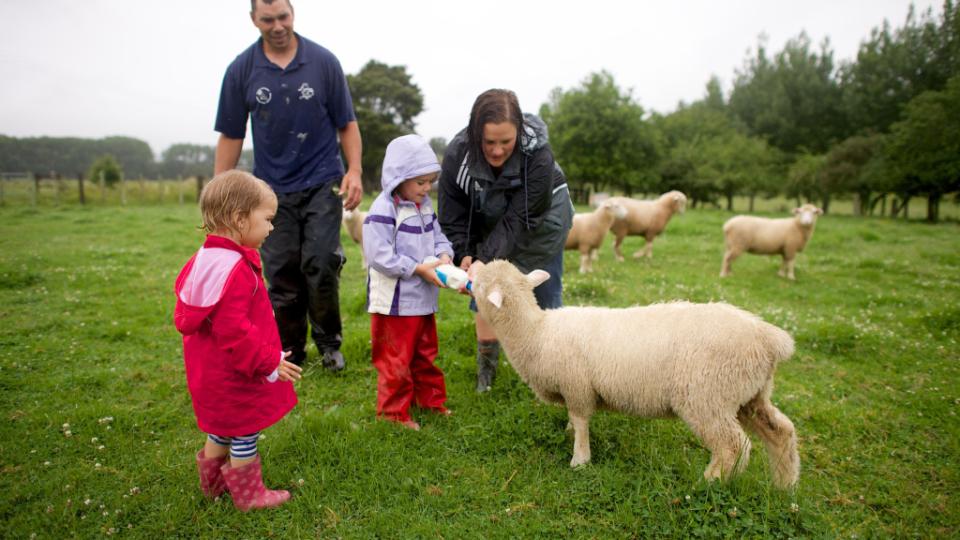June 5th marks World Environment Day. Nonprofits, activists and political leaders speak out on pollution, loss of biodiversity and accelerated climate change. These issues impact people around the whole world. There are several things that parents and individual families are able to do within their own spheres, for it is by small and simple things that “great things are brought to pass.” [1]
The Church of Jesus Christ of Latter-day Saints encourages families to have a family night to “build and strengthen family relationships.” These family nights can also be used to build appreciation and practice stewardship for the environment.
Though the issue of environmental stewardship may not be addressed over the pulpit very often during Sunday services of The Church of Jesus Christ of Latter-day Saints, the scriptures and modern-day prophets and apostles teach us that we must be good stewards over the earth.
As many people around the world call attention to the ongoing crises of pollution, climate change, and deforestation, it can be difficult to know exactly what individuals and families can or should do to aid in the efforts to preserve this planet.
Russell M. Nelson, President of The Church of Jesus Christ of Latter-day Saints has taught "As beneficiaries of the divine Creation, what shall we do? We should care for the earth, be wise stewards over it, and preserve it for future generations." [2]
So how can we as individuals, families, or friends follow President Nelson’s counsel?

Here are a few suggestions of simple things we can do during family home evenings in order to develop ourselves as wise stewards over the earth.
Avoid littering and pollutingEzra Taft Benson taught that when we show irreverence for the earth is showing irreverence for God. "Irreverence for God, of life, and for our fellow men takes the form of things like littering, heedless strip-mining, [and] pollution of water and air. But these are, after all, outward expressions of the inner man.” [3]
It is important to be mindful of how you dispose of chemicals and hazardous materials. People can also try to carpool or use public transport when travelling to work or activities. During family home evenings, families can commit to doing small and simple things to be better stewards such as choosing an activity that requires minimal pollution. Families can walk together and even clean up litter along the way.
Spend time in naturePlan a walk, hike, or bike ride. Get out of the city and spend time admiring God’s creations. As Joseph F. Smith taught, we have a duty to experience and appreciate nature's beauties. "As children of God, it is our duty to appreciate and worship Him in His creations. If we would associate all that is truly good and beautiful in life with thoughts of Him, we would be able to trace His handiwork throughout all nature.” [4]

Feeding Sheep
Enjoying the beauty of the creation with family and friends fosters gratitude.© 2021 by Intellectual Reserve, Inc. All rights reserved.A great time to do this would be during Family Home Evening or on the Sunday as a form of worship outside of the walls of the Church and the home. You can visit a park or go camping nearby.
Learn about the world around youThe scriptures give great insight into why we are commanded to learn about the earth. [5] Acting President of the Quorum of the Twelve Apostles, M. Russell Ballard asks us to "Think of what would happen if all of us took time to look carefully at the wonders of nature that surround us and devoted ourselves to learning more about this world that God created for us…. To truly reverence the Creator, we must appreciate his creations. We need to plan to take time to observe the marvels of nature. Today, we can easily become surrounded by brick buildings and asphalt surfaces that shelter us from real life around us.” [6]

In the Book of Mormon, the prophet Alma teaches that the earth and everything upon it serve as a “witness that there is a Supreme Creator.” [7] As stewards of the earth, it is important to take the time to learn about the earth because it is a divine witness of God's work. Families can read scriptures about the earth together to learn more about how to better care for God's creation.
Teach an Attitude of Gratitude towards the EarthThere is great joy when people are happy with those things that God has entrusted them with. People have a duty to experience and appreciate nature's beauty. During family home evenings, people can express gratitude for the earth and participate in activities that help them develop gratitude for the Earth.
Elder M. Russell Ballard teaches about the importance of showing appreciation for God's Earth and warns about a lack of motivation can be detrimental.
"Those who feel no reverence for the creations and the divine attributes of God likely will have little appreciation for other sacred things. Such a lack of veneration for God's creations may diminish until a person becomes totally insensitive to the feelings of others.” Elder Ballard said. [8]
Family Home Evening is a great place to learn about and foster an attitude of respect and reverence towards the Earth.
[1] Alma 37:6
[2] President Russell M. Nelson, The Creation, April 2000.
[3] Ezra Taft Benson, This Nation Shall Endure, 1977
[4] Cited in George B. Handley, "The Environment Ethics of Mormon Belief," BYU Studies, 40:2, 2001.
[5] Doctrine and Covenants 101:32-34
[6] M. Russell Ballard, God's Love for His Children, April 1988.
[7] Alma 30:44
[8] M. Russell Ballard, Take time to have reverence for creator and his creations, April 1988